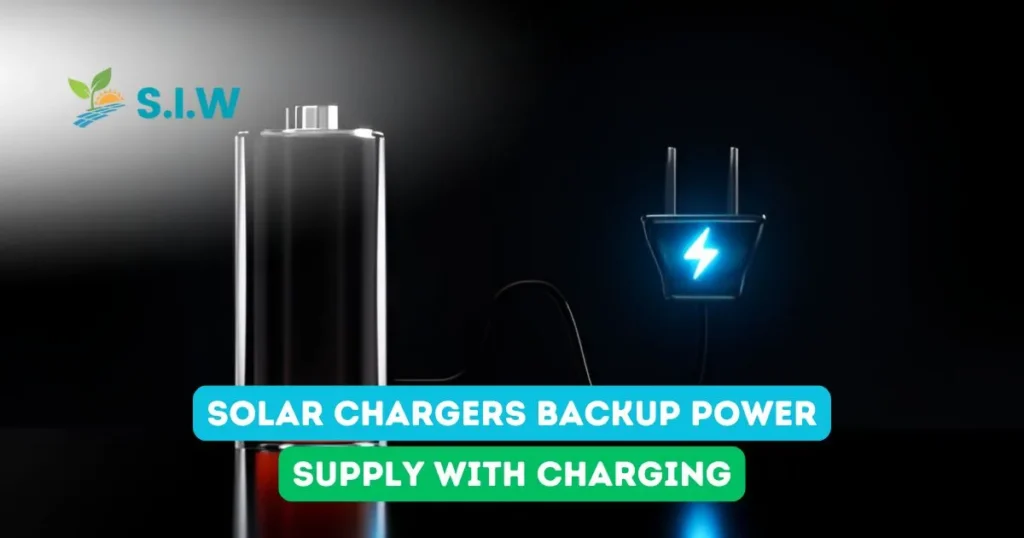In today’s fast-paced world, solar chargers and backup power supplies have emerged as essential tools for maintaining energy independence and ensuring reliable power availability. This comprehensive guide will delve into the intricacies of solar chargers and backup power supplies, offering detailed insights into their functionality, benefits, and key considerations for choosing the right solution.
Understanding Solar Chargers
What is a Solar Charger?
A solar charger harnesses the power of the sun to generate electricity, which can then be used to charge electronic devices such as smartphones, tablets, and laptops. These devices are equipped with photovoltaic cells that convert sunlight into electrical energy. Solar chargers are particularly valuable in scenarios where traditional power sources are unavailable or unreliable.
Types of Solar Chargers
- Portable Solar Chargers: Ideal for outdoor enthusiasts, these chargers are compact and designed for easy transport. They typically feature a foldable design and can be attached to backpacks for on-the-go charging.
- Solar Power Banks: These are battery packs with integrated solar panels. They store energy generated from the sun, allowing users to charge devices even when sunlight is not directly available.
- Solar-Powered Charging Stations: Suitable for home use or camping, these stations provide a higher power output and can charge multiple devices simultaneously.
Key Features to Consider
- Efficiency: The efficiency of a solar charger is determined by the percentage of sunlight converted into usable electricity. High-efficiency solar panels offer faster and more reliable charging.
- Capacity: Measured in milliampere-hours (mAh) or watt-hours (Wh), capacity indicates how much energy the solar charger can store and supply. Larger capacities are ideal for charging power-hungry devices.
- Durability: Solar chargers should be built to withstand various environmental conditions. Look for water-resistant and shockproof models for enhanced durability.
- Portability: For travel and outdoor use, a lightweight and compact design is crucial. Ensure the charger is easy to carry and store.
Exploring Backup Power Supplies
What is a Backup Power Supply?
A backup power supply is a system designed to provide electrical power during outages or in areas with unreliable electricity. These systems are crucial for maintaining the operation of essential devices and systems, such as medical equipment, security systems, and home appliances.
Types of Backup Power Supplies
- Uninterruptible Power Supplies (UPS): These devices provide immediate power when the main supply fails. UPS systems are commonly used in data centers and for critical home electronics.
- Portable Power Stations: Equipped with large-capacity batteries and various output options, these stations are perfect for camping trips or emergency situations where traditional power is unavailable.
- Generator-Based Backup Systems: These systems use fuel-powered generators to produce electricity during outages. They are suitable for long-term backup but require fuel and maintenance.
Key Features to Consider
- Battery Life and Capacity: The capacity of a backup power supply determines how long it can power devices during an outage. Larger capacities and longer battery lives are advantageous for extended power interruptions.
- Output Options: Ensure the backup power supply offers the appropriate outlets and ports for your devices, including AC, DC, and USB outputs.
- Recharge Time: For portable power stations, consider the recharge time needed to restore the battery fully. Faster recharge times enhance usability during emergencies.
- Size and Portability: Depending on your needs, choose between compact, portable options or larger, stationary systems.
Advantages of Solar Chargers and Backup Power Supplies
Solar Chargers
- Eco-Friendly: Solar chargers utilize renewable energy resources, reducing reliance on fossil fuels and minimizing environmental impact.
- Cost-Effective: Once purchased, solar chargers incur minimal ongoing costs since sunlight is free. This makes them a cost-effective solution in the long run.
- Independence: With a solar charger, you can charge your devices anywhere there is sunlight, offering freedom from conventional power sources.
Backup Power Supplies
- Reliability: Backup power supplies ensure that critical devices remain operational during power outages, providing peace of mind and uninterrupted service.
- Versatility: They can be used for a wide range of applications, from powering essential appliances to charging electronic devices during emergencies.
- Convenience: Modern backup power supplies offer features like easy portability and multiple output options, enhancing their usability and convenience.
Choosing the Right Solution
When selecting a solar charger or backup power supply, consider your specific needs and use cases. Evaluate factors such as power requirements, portability, and environmental conditions to find the most suitable solution.
For those who frequently travel or spend time outdoors, a high-efficiency portable solar charger may be the ideal choice. On the other hand, if you require a reliable power source during emergencies, a robust backup power supply with substantial capacity and versatile output options will be more appropriate.
In summary, solar chargers and backup power supplies play a crucial role in ensuring consistent power availability and supporting sustainable energy practices. By understanding their features, benefits, and applications, you can make an informed decision and enhance your power management strategy.








